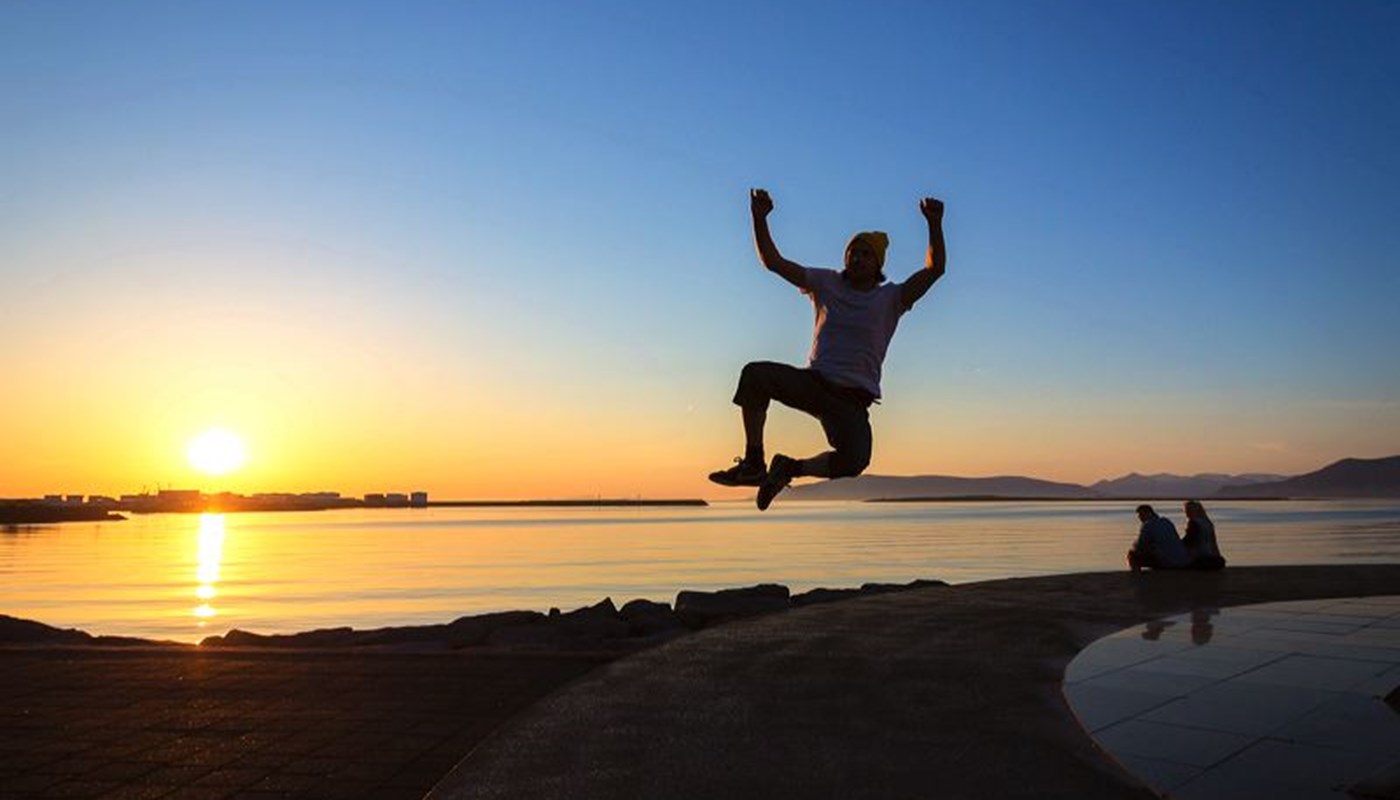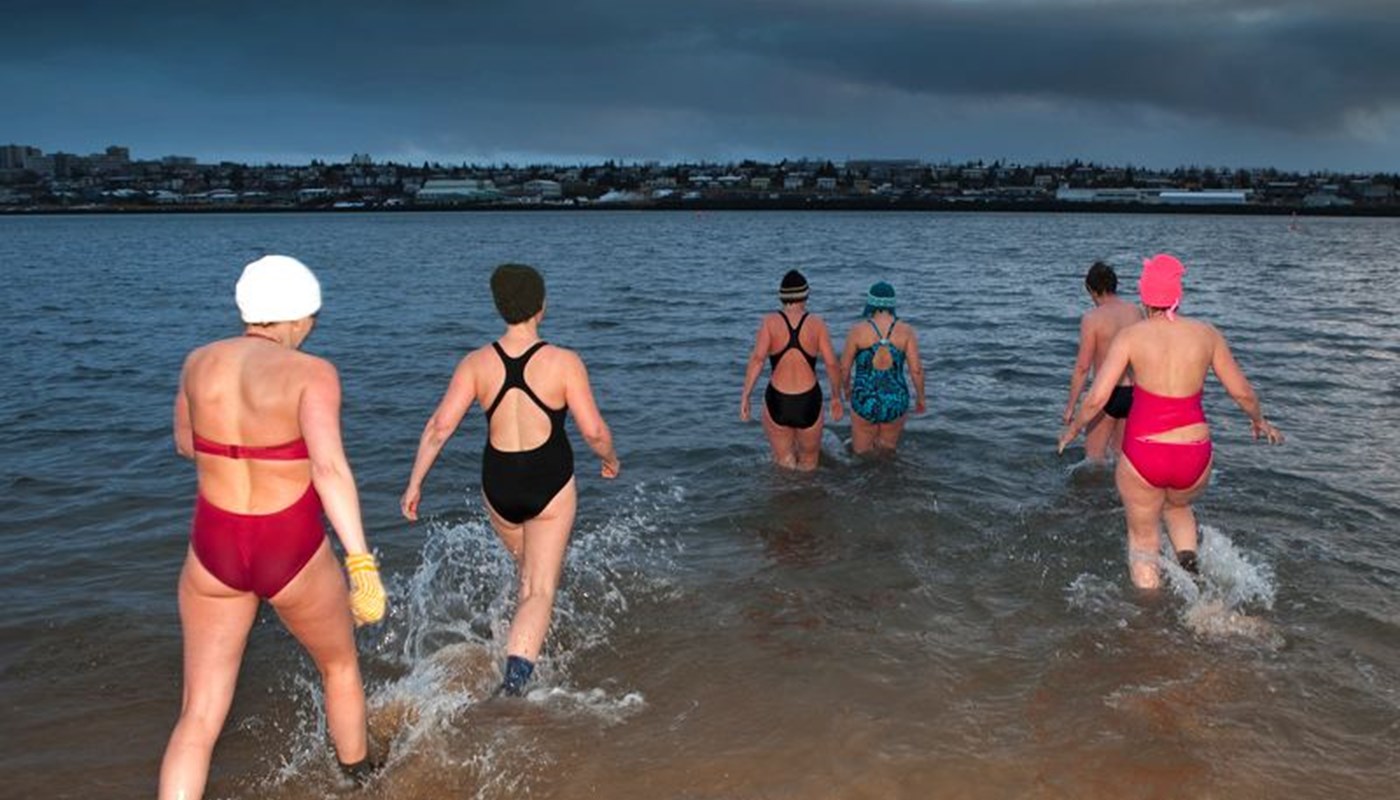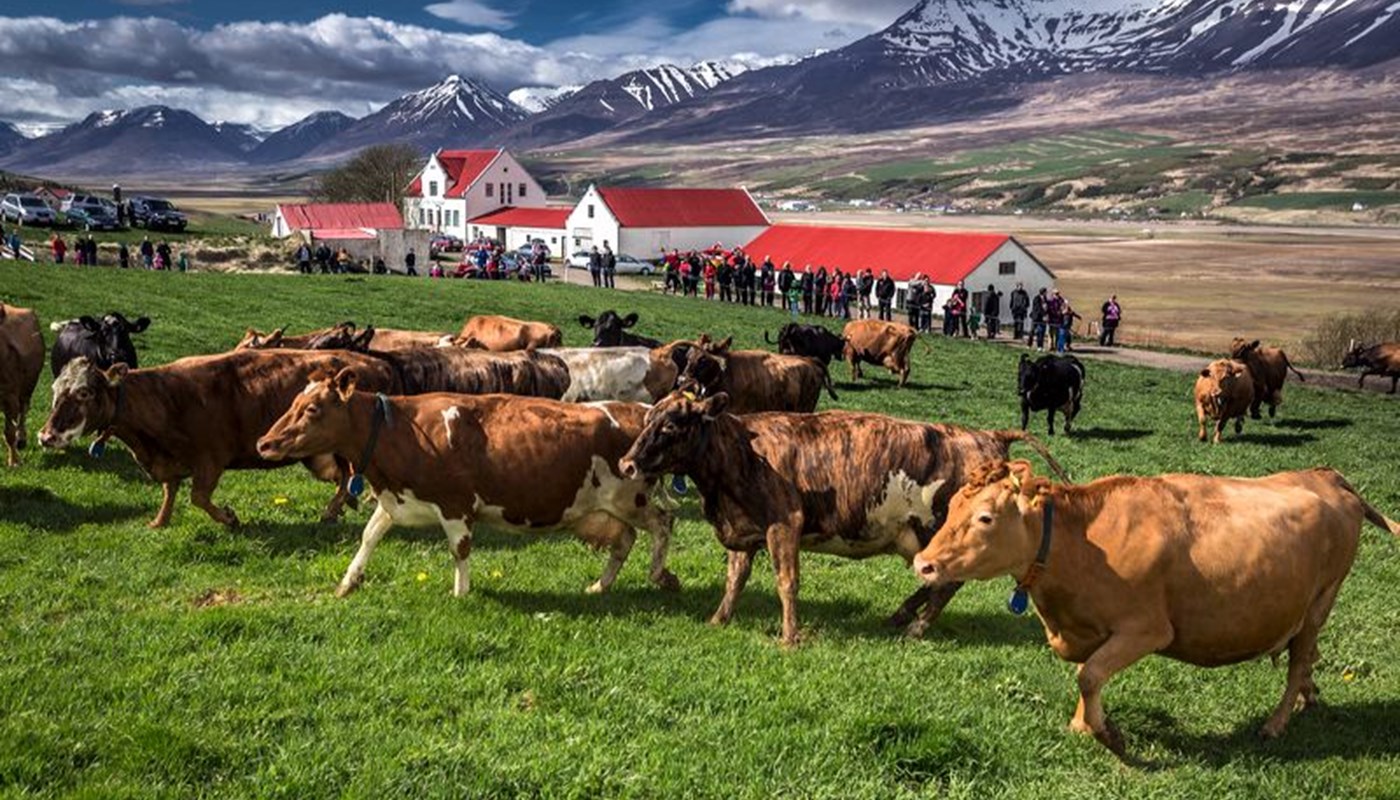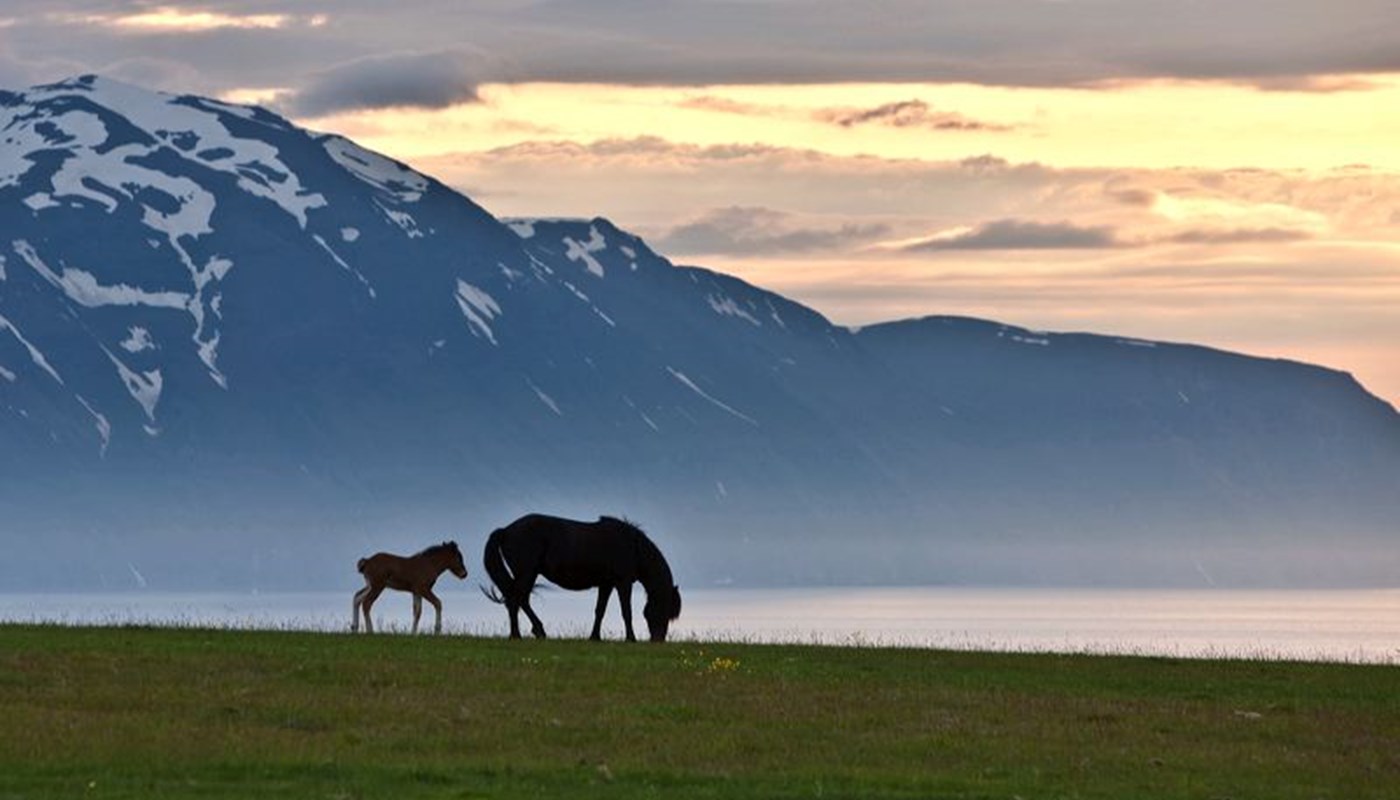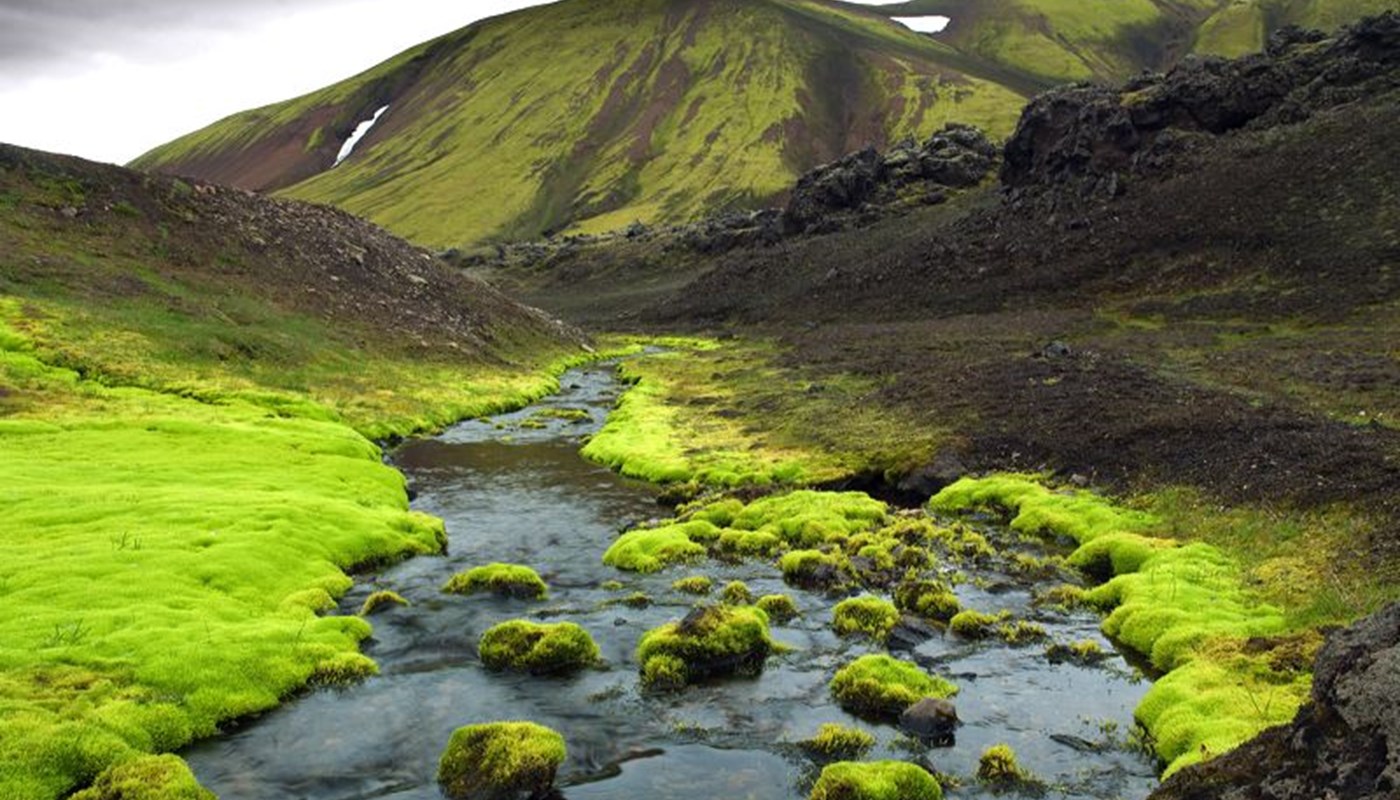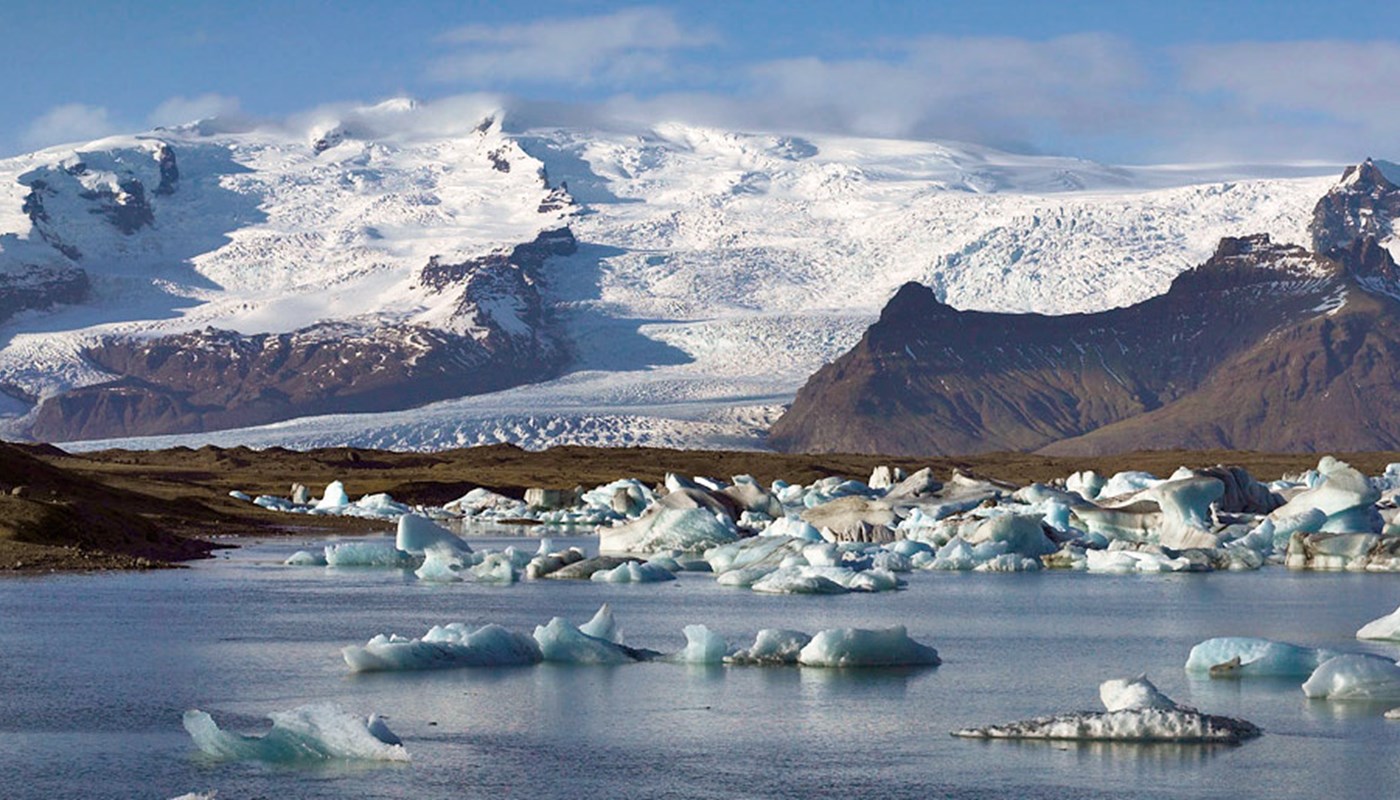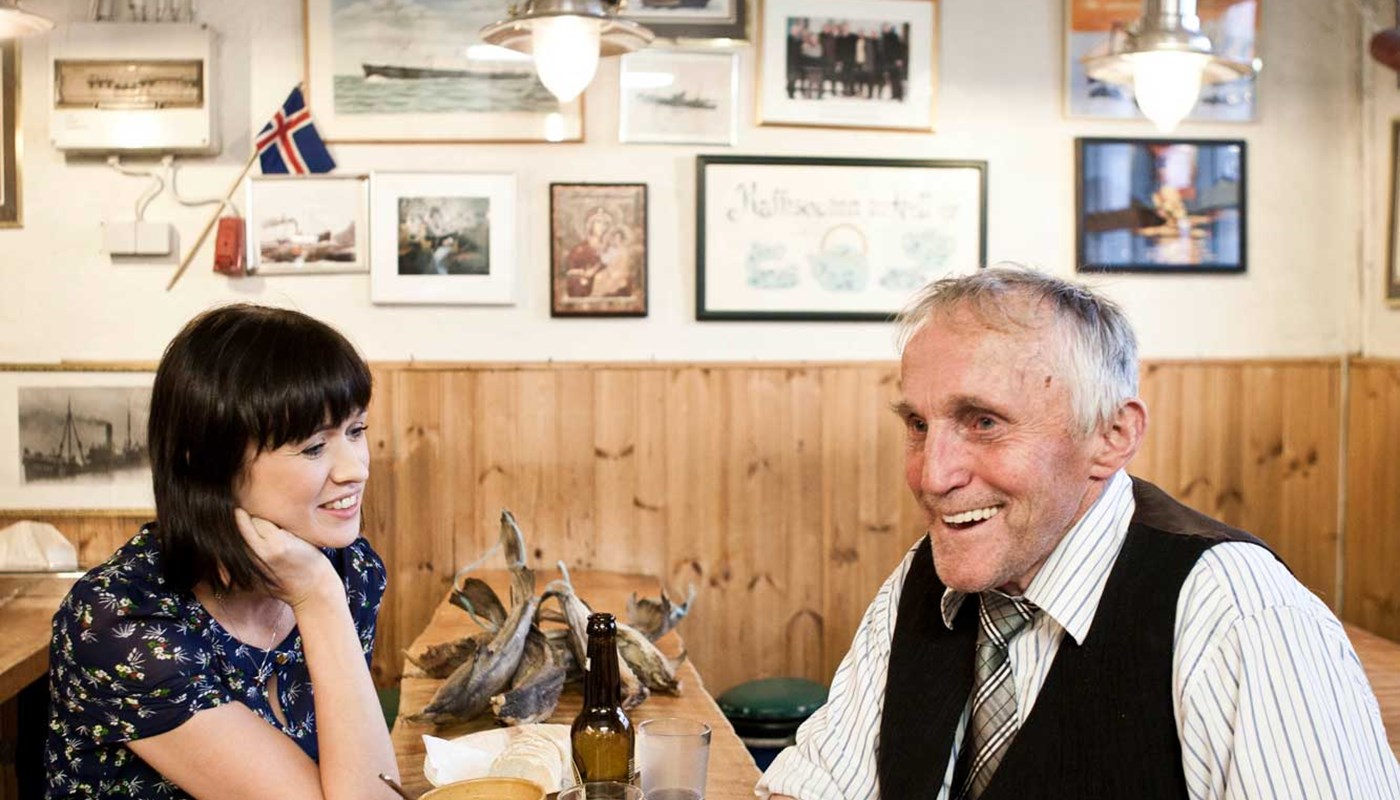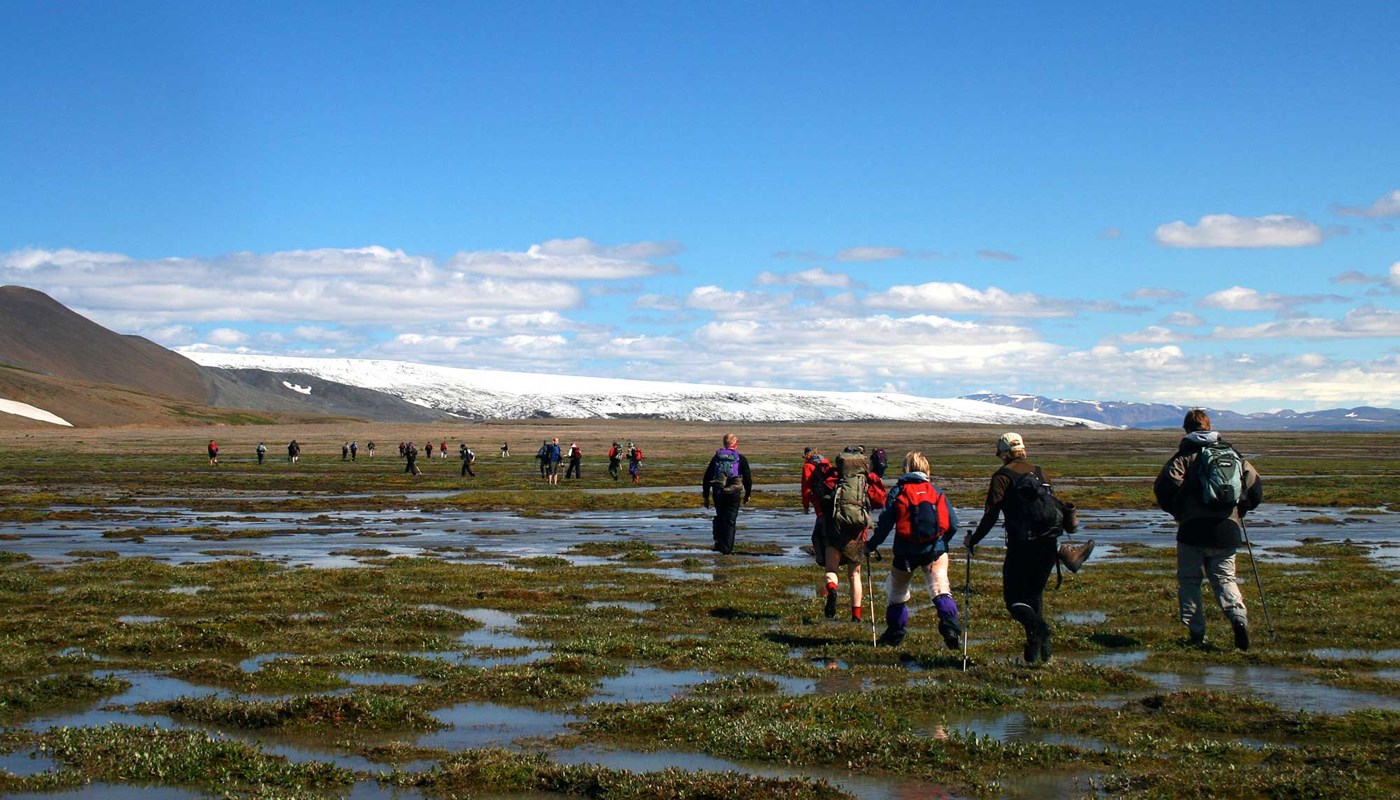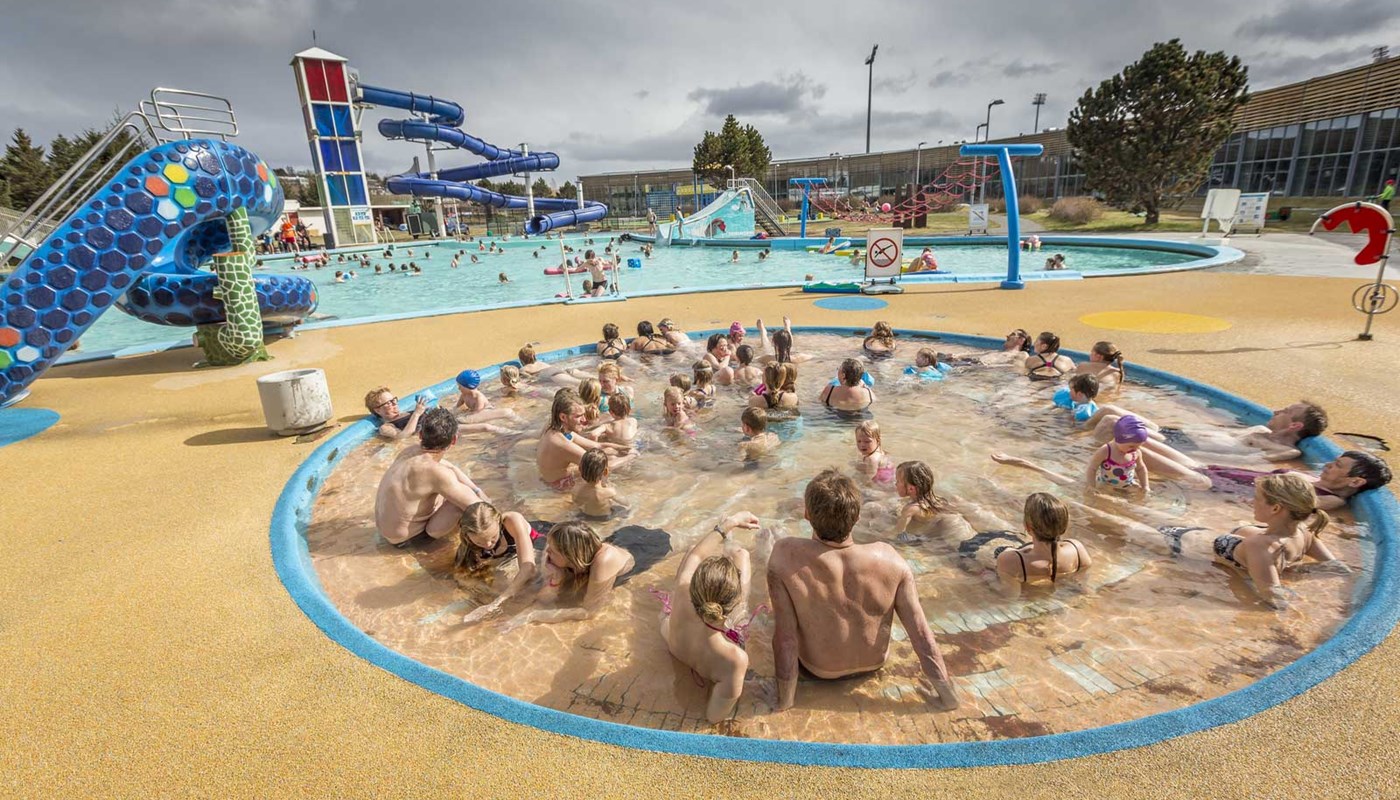PURITY OF LIFE
Icelanders have long enjoyed one of the highest life expectancies in the world. There is no definitive explanation for this, but a clean environment and a healthy diet and lifestyle probably have something to do with it.
The Icelandic diet is rich in quality raw materials, farmed, bred and caught in an unpolluted environment, and produced with the utmost care.
The air quality in Iceland is good due to the island's North Atlantic oceanic climate and steady winds. Furthermore, most of the electricity needs are met with renewable energy sources. Geothermal energy, a much cleaner alternative to fossil fuels, is used to heat more than ninety percent of Iceland's buildings and most of the swimming pools.

In addition to recreational pools, Icelanders enjoy natural hot springs and geothermal lagoons, such as the famous Blue Lagoon and Mývatn Nature Baths, whose high levels of silicates and other minerals have an especially rejuvenating effect on the skin.
The quality of the drinking water in Iceland is also exceptionally good due to a wealth of fresh water rivers that stream down from the mountains and glaciers. In fact, it’s perfectly safe and highly recommended to drink this water straight from the source. Otherwise, it’s still just a pipe away to your tap.
More Themes
A Country of Creatives
For an isolated culture in the North Atlantic, creativity is important. Ever since Iceland was settled in the 9th century, writing and music have been an integral part of life in the country; and have in recent years reached a large audience on the global stage thanks to the efforts of international pop stars such as Björk and Sigur Rós, as well as the wide readership of authors like Halldór Laxness, Arnaldur Indriðason and Yrsa Sigurðardóttir.
Culture
Iceland was the last country in Europe to be settled. To this day, it is one of the most sparsely populated countries in the world. Located in the middle of the North Atlantic, Iceland was settled by emigrants from Scandinavia and the British Isles in the tenth century. Due to Iceland's geographical location, it was mostly outside the influence of contemporary culture in Europe and America, until the late nineteenth century.
Mysterious Iceland
Iceland is home to the largest glaciers in Europe, as well as some of the world's most active volcanoes, and is widely known as "The Land of Fire and Ice". But Iceland escapes definition. It is also the land of light and darkness. Its location, just below the Arctic Circle, makes for long summer days with near 24-hours of sunlight; offset by short winter days with very little sunlight at all. Fortunately, while winters in Iceland are dark, they are relatively mild and play host to one of nature's most spectacular exhibitions of beauty; the Aurora Borealis.


